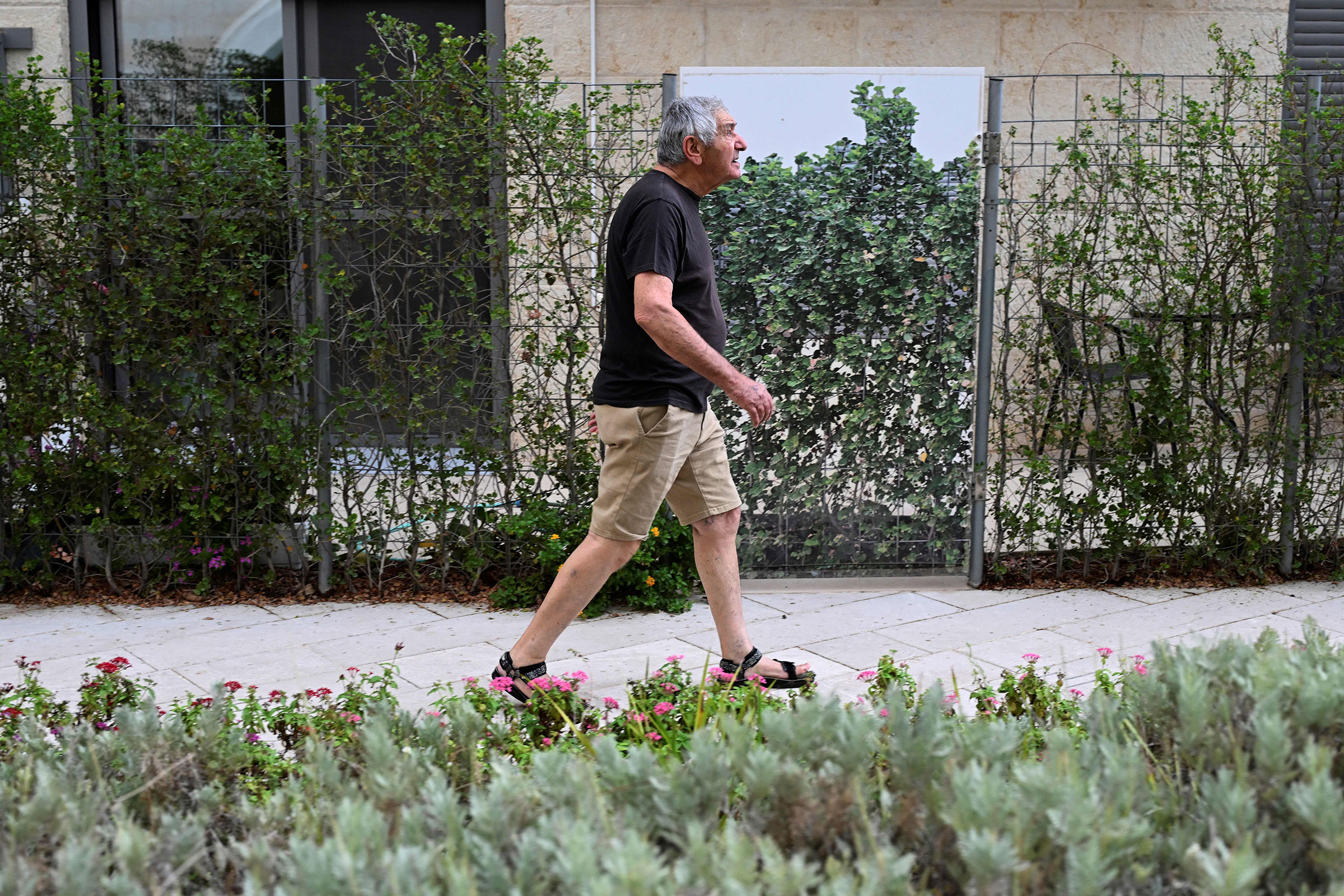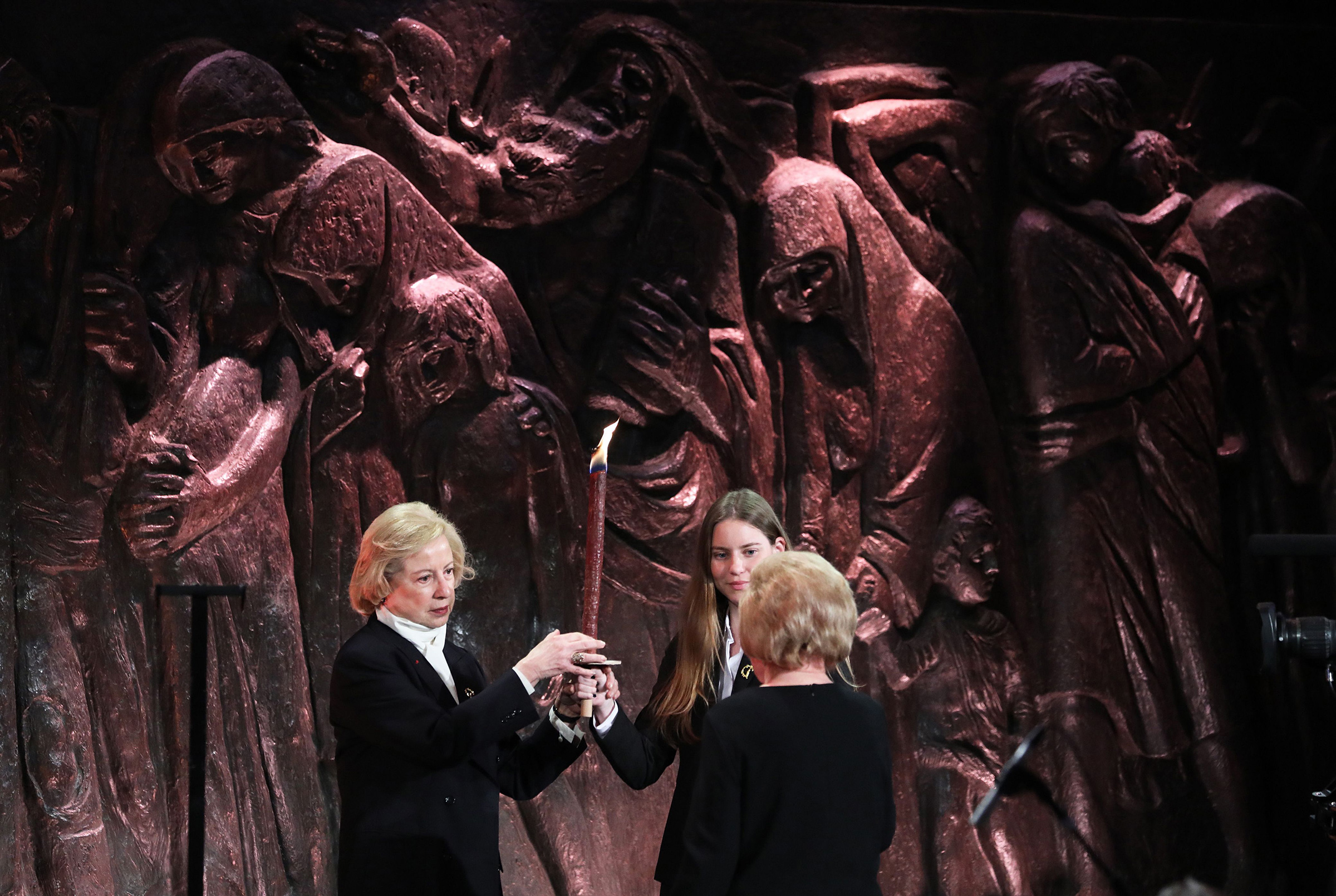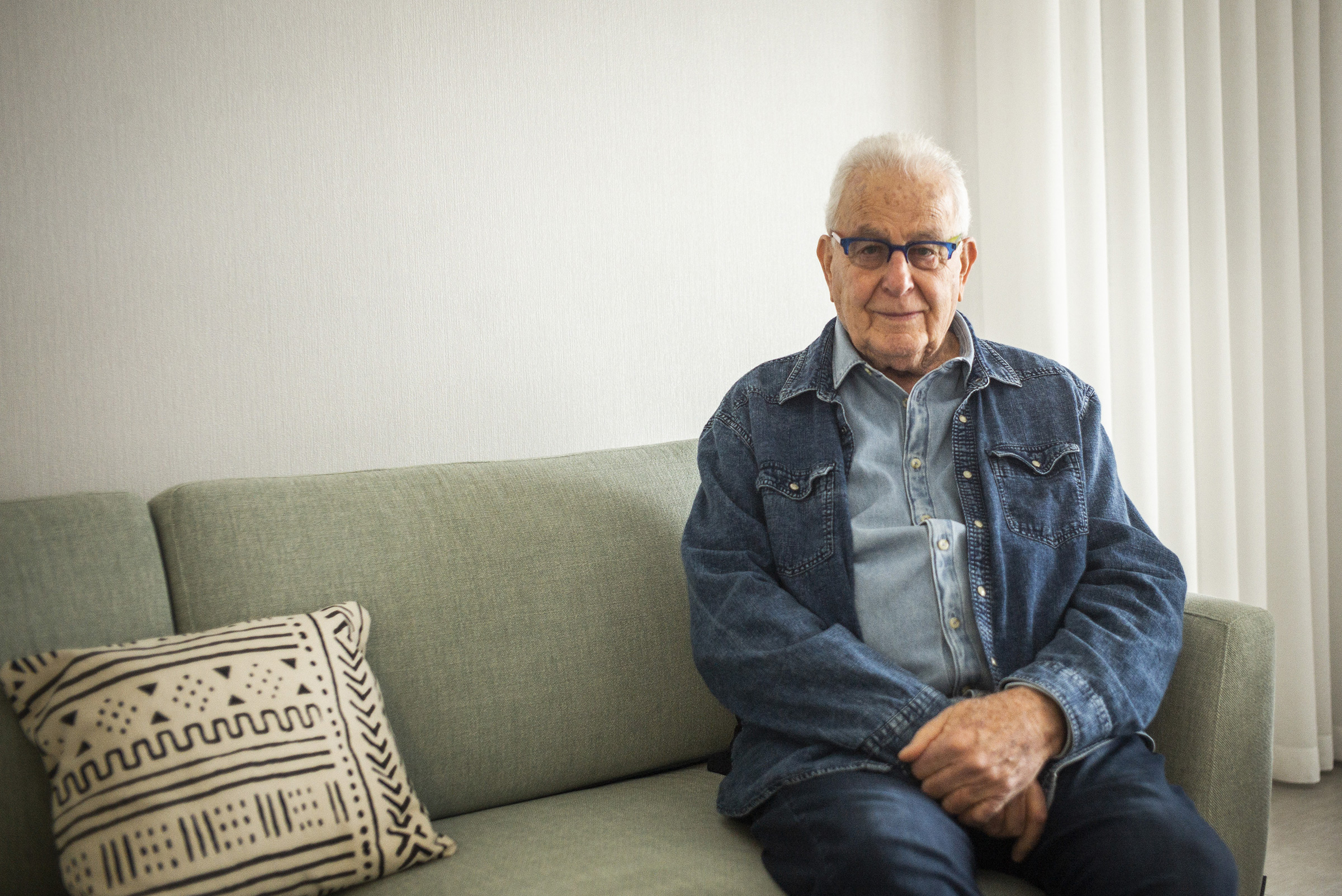
Two days after the Israel-Hamas war broke out on Oct. 7, 83-year-old Holocaust survivor Yaakov Weissmann relocated from his home near Gaza in southern Israel—where 23 of his family members live—to an apartment in an elderly home in a safer area southeast of Tel-Aviv. Between the experience of being uprooted and watching the coverage of Israeli hostages separated from their families by Hamas, he is experiencing a painful sense of deja-vu.
“When I saw Hamas take as hostages the old, children, women, this image makes me think back to the Holocaust and all of the children who have lost their parents, never to see them again,” Weissmann, who never saw his father again after he was taken by the Nazis in France during World War II, told TIME in a video call on Oct. 25, speaking in French via a translator.
Read More: The Families of Israelis Held Hostage by Hamas Speak Out
Weissmann is one of about 120,000 Holocaust survivors in Israel. All are elderly and many are in need. Today, some remain in evacuated or partly evacuated cities because they have nowhere else to go, according to Gabriel Sod, Director of Government Relations at the Israel office of UJA Federation, one of the charitable organizations that provides assistance to Holocaust survivors. Holocaust survivors have found it difficult to get groceries or medicine because many stores and doctor’s offices were closed during the few weeks of the war. Such is true for all elderly Israelis, but the emotional toll on survivors can feel different: While the Israel-Hamas war—which has claimed the lives of more than 1,400 Israelis—cannot be compared to what they experienced in the 1930s and ‘40s, the fear, pain, and disruptions to daily life affecting Israelis right now has left many Holocaust survivors reckoning with their enduring trauma.
“It's a terrible time for all of Israel—how much more so for Holocaust survivors who have seen what the rest of us can only imagine?” says Gideon Taylor, President of the Conference on Jewish Material Claims Against Germany (Claims Conference), which provides compensation to Holocaust survivors and grants to social services agencies worldwide.

Nonprofits and charitable organizations worldwide have begun flowing support to groups on the ground working with this population. The Claims Conference set aside approximately $7.5 million for the care of Holocaust survivors after the war started. Social services organizations that it supports include Latet and Foundation for the Benefit of Holocaust Survivors, which prepare care packages of food and hygiene products. Organizations that help Holocaust survivors in the U.S. are fundraising for their Israeli counterparts, like New York City-based nonprofit The Blue Card, which is raising money for the Foundation for the Welfare of Holocaust Victims.
The Jewish philanthropic group UJA Federation usually donates $40 million to Israeli charitable organizations annually, and in the first two weeks of the war, already allocated $35 million. Social services groups that UJA Federation is giving grants to include L’Ma’anam, which helps connect Holocaust survivors in the Dead Sea area to doctors and nurses, including retired medical professionals. Because survivors are having a hard time getting to centers where they can talk to a therapist, UJA Federation gave a grant to Amcha so that it could set up a hotline to provide psychological counseling remotely. And since the war began, staffers at the museum and education center Yad Vashem, which helps Holocaust survivors record their memories of the war, are visiting the homes of the survivors they work with to bring them any supplies they need and keep them company.
“I cannot stop the tears,” says Colette Avital, 84, Tel Aviv-based chairperson of the Center Organizations of Holocaust Survivors in Israel, who still remembers her father being beaten by them when she was a little girl in Romania. “The people who today are in their 80s and 90s…all the images of the past come back. They have nightmares, if they can sleep at all at night.”

Watching their extended family struggle to find safety during the Israel-Hamas war has left many of them feeling helpless. In a video call on Oct. 26, Naftali Fürst, a 91-year-old Holocaust survivor in Haifa who lived in concentration camps for three years during World War II, says he was in a panic on Oct. 7 because his granddaughter and great-grandson lost phone service and electricity in Kfar Aza in Southern Israel and spent hours in a bomb shelter. They went on to stay with his daughter, but the family is mourning his grandson-in-law’s parents, who he says were killed that day in Kfar Aza. When people ask Fürst how he was able to survive the Holocaust, he always says, “I needed a lot of luck.” He is grateful that his granddaughter and great-grandson also got lucky. But he feels like the future is still uncertain. “We are very sad and don’t feel secure because we don’t know what will happen tomorrow or in another half hour,” Fürst says in Hebrew. “I’m not young now. I’m 91 years old…I didn’t think I would need to experience a trauma like this again.” Fürst is also one of many Jews who question whether Israeli Prime Minister Benjamin Netanyahu is fit for the job of wartime leader, arguing, “Some people say it’s not right of me to talk negatively about my country, but this is how I feel and I don’t care who hears it.”
Rena Quint, an 87-year-old survivor in Jerusalem who lost her entire family in the Holocaust, says watching the television footage of the war has brought back memories of seeing dead bodies in Bergen Belsen concentration camp and being separated from her mother in a ghetto in Poland. But she refuses to shelter in place. Thinking of her 12 grandsons serving as reservists in the Israel Defense Force, she goes to her local synagogue and ties tzitzit, the fringes on prayer shawls, for soldiers. “I, at 87, cannot run around, but I can sit and put these together,” she said in a video call on Oct. 24. She has opened up her extra bedroom to a woman whose house in southern Israel burned down. “I could not have survived as a little girl unless people took care of me, who got rid of my lice, who held my hand while I was walking in the snow,” she says. “If they helped me, then I have to help others.”
—With additional reporting by Aryn Baker/Rome and Anna Gordon/London
More Must-Reads From TIME
- The 100 Most Influential People of 2024
- Coco Gauff Is Playing for Herself Now
- Scenes From Pro-Palestinian Encampments Across U.S. Universities
- 6 Compliments That Land Every Time
- If You're Dating Right Now , You're Brave: Column
- The AI That Could Heal a Divided Internet
- Fallout Is a Brilliant Model for the Future of Video Game Adaptations
- Want Weekly Recs on What to Watch, Read, and More? Sign Up for Worth Your Time
Write to Olivia B. Waxman at olivia.waxman@time.com